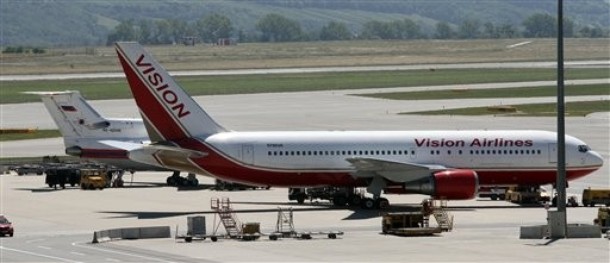
From Peter Baker, Ellen Barry and Benjamin Weiser, the New York Times: In a seeming flashback to the cold war, Russian and American officials traded prisoners in the bright sunlight on the tarmac of a Vienna airport on Friday , bringing to a quick end an episode that had threatened to disrupt relations between the two countries.
Planes carrying 10 convicted Russian sleeper agents and 4 men accused by Moscow of spying for the West swooped into Vienna, once a hub of clandestine East-West maneuvering, and the men and women were transferred, according to an American official. …
A White House spokesman, Ben Rhodes, said the episode would not affect the reset and that the two sides would cooperate when possible “even as we will defend our interests when we differ.” Rahm Emanuel, the chief of staff, said the president was fully briefed on the decision. Mr. Emanuel said the case showed that the United States was still watchful even as relations improved.
“It sends a clear signal to not only Russia but other countries that will attempt this that we are on to them,” he told the PBS program “NewsHour.”
From Veronika Oleksyn and Vanessa Gera, the AP: Alexander Zaporozhsky, may have exposed information leading to the capture of Robert Hanssen and Aldrich Ames, two of the most damaging spies ever caught in the U.S. …
The Kremlin identified the four as … [Alexander] Zaporozhsky, a former colonel in the Russian Foreign Intelligence Service, sentenced in 2003 to 18 years in prison for espionage on behalf of the United States. He was convicted on charges of passing secret information about Russian agents working undercover in the United States and about American sources working for Russian intelligence.
[Sergei] Skripal, a former colonel in the Russian military intelligence, was found guilty of passing state secrets to Britain and sentenced to 13 years in prison in 2006. He was accused of revealing the names of several dozen Russian agents working in Europe.
[Igor] Sutyagin, a military analyst, asserts his innocence despite the confession. He worked with the U.S.A. and Canada Institute, a respected Moscow-based think-tank, before being sentenced to 15 years in 2004 on charges of passing information on nuclear submarines and other weapons to a British company that Russia claimed was a CIA cover. Sutyagin says the information he provided was available from open sources.
Gennady Vasilenko, a former KGB officer employed as a security officer by Russia’s NTV television, was sentenced in 2006 to three years in prison on murky charges of illegal weapons possession and resistance to authorities. It was not exactly clear why he was involved in the spy swap. (photo: AP)
Image: ap%207%209%2010%20spy%20swap%20Vienna%20airport.jpg
